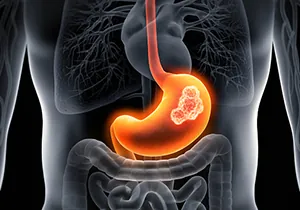
Stomach Cancer Diagnoses Surge: Early Detection is Key!
2025-05-05
Author: Li
Revolutionary Shift in Stomach Cancer Detection
Big news for health enthusiasts: stomach cancer diagnoses are now happening at far less advanced, more treatable stages! This breakthrough, revealed in a groundbreaking study at Digestive Disease Week® 2025, signals a significant leap forward in the fight against one of the most lethal cancers.
Dr. Mohamed Tausif Siddiqui, a prominent gastroenterologist at Cleveland Clinic and lead author of the study, emphasizes that improvements in endoscopic imaging and the broader use of upper endoscopy are playing a pivotal role in this positive trend. "Finding stomach cancer earlier can mean less invasive treatments and much better outcomes for patients,” he highlighted.
Stomach Cancer: The Ominous Numbers
Despite the good news, stomach cancer remains a formidable opponent worldwide. According to the American Cancer Society, approximately 26,500 new cases and over 10,800 deaths are expected in the United States alone by 2025—making awareness and early detection crucial.
Study Insights: A Glimpse into the Data
In an analysis of the National Cancer Institute’s SEER-22 database, the findings are striking: early-stage stomach cancer diagnoses soared by about 53% from 2004 to 2021. Meanwhile, cases involving later-stage diagnoses—when the cancer spreads to lymph nodes or distant organs—have seen a marked decline.
Overall, the incidence of stomach cancer in the U.S. has slightly decreased over the past two decades, from 8.44 per 100,000 people in 2000 to 7.53 in 2021. Notably, the year 2020 recorded the lowest rate, likely due to the impact of the COVID-19 pandemic on health services.
A New Era of Diagnosis
For the first time, 2021 saw early-stage localized stomach cancer being diagnosed more frequently than its advanced counterparts. From 2004 to 2021, there was a stunning 38% drop in diagnoses involving regional spread, and nearly an 8% decline in distant cases. However, while early-stage cancer is generally more treatable, this study did not delve into whether these changes have positively affected mortality rates.
The Power of Early Detection
Dr. Siddiqui points out that this study highlights the immense value of early detection methods and the importance of leveraging high-quality endoscopy tools. He suggests that screening high-risk individuals could potentially elevate survival rates even further.
Those considered at highest risk include individuals with Helicobacter pylori infections, a family history of stomach cancer, certain genetic syndromes, or ongoing digestive issues such as acid reflux.
With modern advancements like high-definition endoscopes, narrow-band imaging, and endoscopic ultrasound, doctors are now able to spot subtle mucosal changes during evaluations, helping to explain the encouraging trends observed in recent years.



 Brasil (PT)
Brasil (PT)
 Canada (EN)
Canada (EN)
 Chile (ES)
Chile (ES)
 Česko (CS)
Česko (CS)
 대한민국 (KO)
대한민국 (KO)
 España (ES)
España (ES)
 France (FR)
France (FR)
 Hong Kong (EN)
Hong Kong (EN)
 Italia (IT)
Italia (IT)
 日本 (JA)
日本 (JA)
 Magyarország (HU)
Magyarország (HU)
 Norge (NO)
Norge (NO)
 Polska (PL)
Polska (PL)
 Schweiz (DE)
Schweiz (DE)
 Singapore (EN)
Singapore (EN)
 Sverige (SV)
Sverige (SV)
 Suomi (FI)
Suomi (FI)
 Türkiye (TR)
Türkiye (TR)
 الإمارات العربية المتحدة (AR)
الإمارات العربية المتحدة (AR)